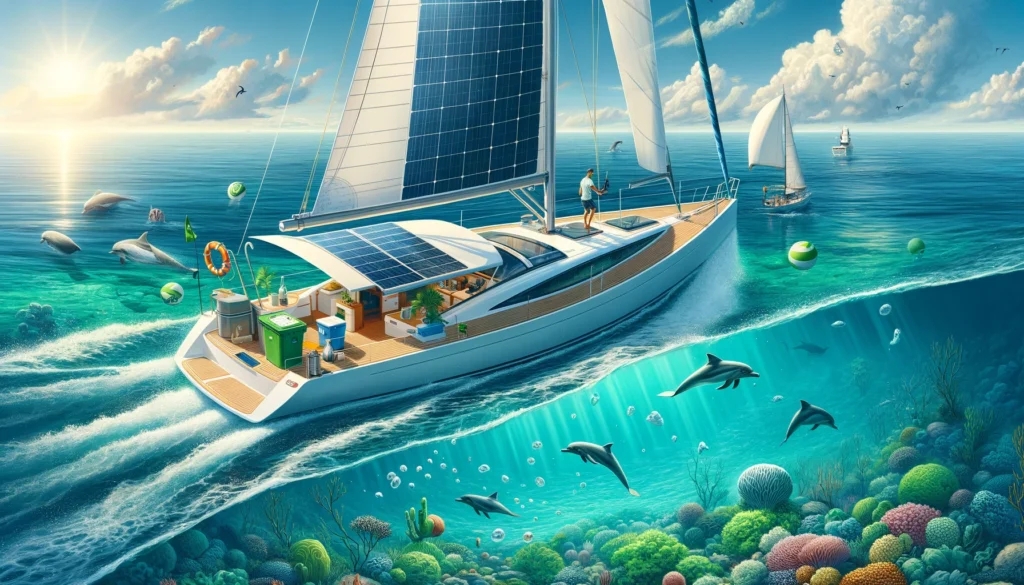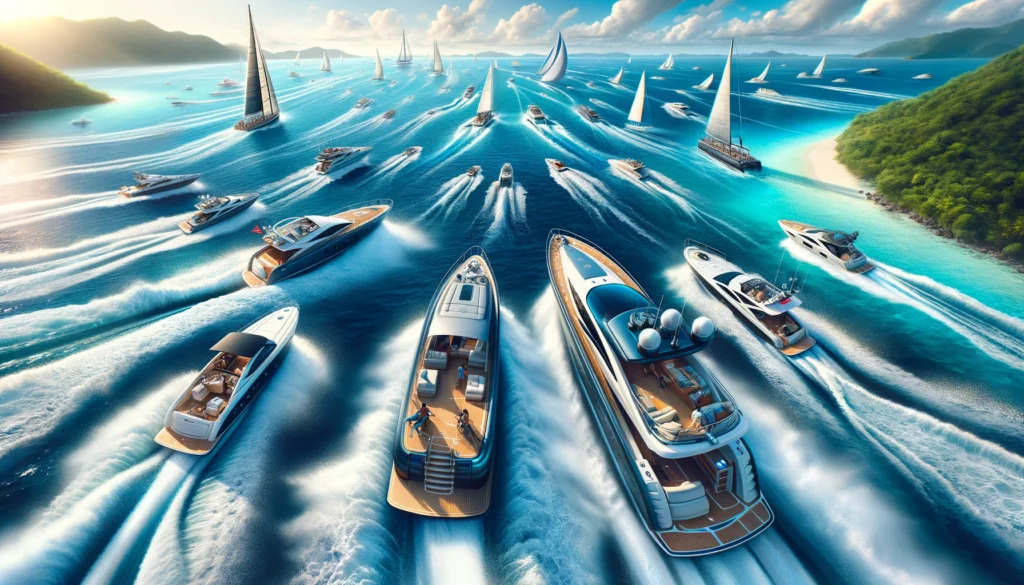Ahoy, fellow sea enthusiasts and guardians of the blue! As a lifelong boater with a deep-seated love for the ocean’s vastness and its intricate ecosystems, I’ve witnessed firsthand the sheer joy that comes from setting sail on open waters. However, with this privilege comes a significant responsibility: to minimize our environmental footprint and protect the marine environments we so dearly cherish. Today, I’m diving deep into the environmental impact of boating and, most importantly, how we can tread lightly upon our aquatic playgrounds. This guide is not just about adhering to safe boating practices; it’s a manifesto for sustainable boating that every waterborne adventurer, from seasoned sailors to those embarking on their boating experience tips for beginners, should live by.
Contents
The Ripple Effect: Understanding Our Impact
Boating, like any activity that intersects with nature, leaves an imprint on the environment. This impact ranges from the physical (such as damage to coral reefs and seabeds) to the chemical (including pollution from fuel and waste). Noise pollution, another less visible but equally harmful effect, disrupts marine life, affecting navigation, communication, and even the health of aquatic animals. Recognizing these impacts is the first step toward mitigating them.
Navigating Towards Sustainability: Key Strategies
1. Eco-Friendly Maintenance
The way we maintain our vessels plays a crucial role in environmental conservation. Use biodegradable and phosphate-free cleaning products to keep toxins out of the water. When painting your boat, opt for eco-friendly antifouling paints that minimize harm to marine life. Regular maintenance checks also prevent leaks and reduce the risk of fuel spills, which are detrimental to marine ecosystems.
2. Mindful Fueling Practices
Fueling a boat offers ample opportunity for pollution, but with careful practices, spills can be prevented. Always fuel at a slow rate to avoid overfilling, and use an absorbent pad around the fuel port to catch any drips. Consider investing in fuel-efficient engines and propellers to reduce your overall fuel consumption.
3. Responsible Waste Management
The mantra “pack it in, pack it out” is golden in boating. Dispose of all trash, including food scraps and fishing lines, on land in appropriate receptacles. Utilize onboard sanitation systems correctly and never discharge sewage near the shore or in still waters. Encourage recycling and minimize single-use plastics on your boat.
4. Embrace Quiet Enjoyment
Reducing noise pollution is as vital as minimizing physical waste. Stick to designated boating areas to avoid disturbing wildlife habitats. When possible, sail, row, or use electric motors, which are much quieter than their gas-guzzling counterparts. The serene sound of the waves should be the loudest thing you hear.
5. Anchor with Care
Anchoring can cause significant damage to the ocean floor. Avoid dropping anchor on coral reefs or in seagrass meadows. Use mooring buoys when available, and if you must anchor, do so in sandy or muddy areas where the impact is minimal.
6. Become an Ocean Steward
Engage in local conservation efforts and educate yourself and others about the marine environment. Participate in beach cleanups and report any pollution or wildlife disturbances. Advocacy and education are powerful tools in the fight against environmental degradation.
Charting a Greener Course: The Role of Technology
Advancements in technology offer promising avenues for reducing the environmental impact of boating. Electric and hybrid engines, for example, provide cleaner alternatives to traditional fuel-powered motors. Solar panels and wind generators can supplement your energy needs onboard, reducing reliance on fossil fuels. Investing in these technologies not only diminishes your carbon footprint but also paves the way for a more sustainable boating industry.
The Voyage Ahead: A Call to Action
As boaters, we have the privilege of experiencing the beauty of the world’s waters firsthand. With this privilege comes the duty to protect and preserve our marine environments for future generations. By incorporating safe boating practices and adopting a mindset of stewardship, we can ensure that our boating adventures leave a positive legacy.
The journey towards sustainable boating is not a solo voyage but a collective effort. It begins with individual actions: choosing eco-friendly products, practicing responsible waste management, and investing in green technology. Yet, its true power is realized when we come together as a community to advocate for the protection of our aquatic ecosystems.
In Conclusion
The call of the sea is undeniable for those of us who cherish our time spent aboard. As we navigate through the waters of change, let our legacy be one of conservation and respect for the natural world. Embracing the principles outlined in this guide is not just about minimizing harm; it’s about actively contributing to the health and vitality of our planet’s lifeblood—the oceans.
So, to my fellow boaters, I extend this challenge: let us set a course for sustainability, where each voyage, no matter how small, contributes to the preservation of our marine environments. Together, we can ensure that the only wake we leave behind is one of positive change.



